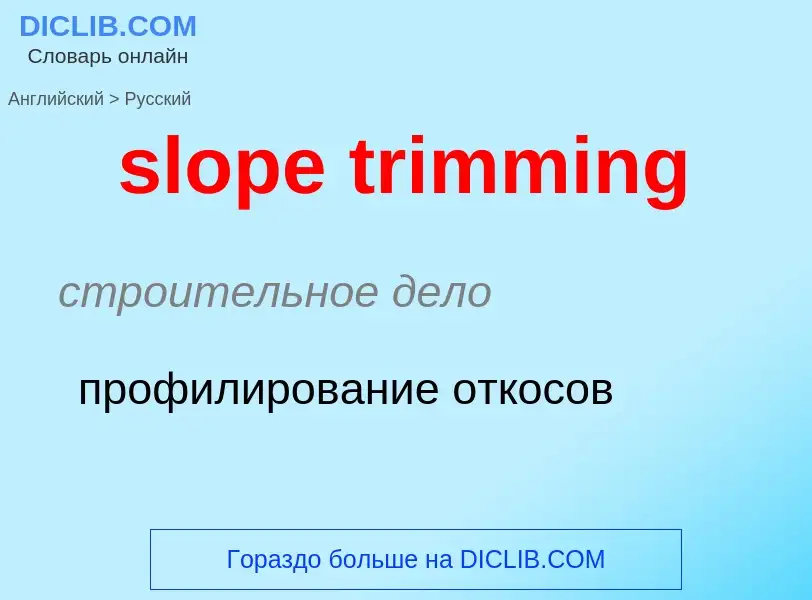Traduzione e analisi delle parole tramite l'intelligenza artificiale ChatGPT
In questa pagina puoi ottenere un'analisi dettagliata di una parola o frase, prodotta utilizzando la migliore tecnologia di intelligenza artificiale fino ad oggi:
- come viene usata la parola
- frequenza di utilizzo
- è usato più spesso nel discorso orale o scritto
- opzioni di traduzione delle parole
- esempi di utilizzo (varie frasi con traduzione)
- etimologia
slope trimming - traduzione in russo
строительное дело
профилирование откосов
Definizione
Wikipedia

Debeaking, beak trimming (also spelt beak-trimming), or beak conditioning is the partial removal of the beak of poultry, especially layer hens and turkeys although it may also be performed on quail and ducks. Most commonly, the beak is shortened permanently, although regrowth can occur. The trimmed lower beak is somewhat longer than the upper beak. A similar but separate practice, usually performed by an avian veterinarian or an experienced birdkeeper, involves clipping, filing or sanding the beaks of captive birds for health purposes – in order to correct or temporarily alleviate overgrowths or deformities and better allow the bird to go about its normal feeding and preening activities. Amongst raptor-keepers, this practice is commonly known as "coping".
Beak trimming is most common in egg-laying strains of chickens. In some countries, such as the United States, turkeys routinely have their beaks trimmed. In the UK, only 10% of turkeys are beak trimmed. Beak trimming is a preventive measure to reduce damage caused by injurious pecking such as cannibalism, feather pecking and vent pecking, and thereby improve livability. Commercial broiler chickens are not routinely beak trimmed as they reach slaughter weight at approximately 6 weeks of age, i.e. before injurious pecking usually begins. However, broiler breeding stock may be trimmed to prevent damage during mating. In some countries, beak trimming is done as a last resort where alternatives are considered not to be possible or appropriate.
Opponents of beak trimming state that the practice reduces problem pecking by minor amounts compared to the trauma, injury, and harm done to the entire flock by beak trimming. Reduction is in single digit percentiles, whereas improvement of conditions especially in layer colonies will cease problematic behavior entirely.
Several European countries have banned beak trimming, including Denmark (2013), Finland (1986), Germany (2017), the Netherlands (2019), Norway (1974) and Sweden (1988); analysts expect other European countries such as the UK to follow in the near future.
In close confinement, cannibalism, feather pecking and aggression are common among turkeys, ducks, pheasants, quail, and chickens of many breeds (including both heritage breeds and modern hybrids) kept for eggs. The tendency to cannibalism and feather pecking varies among different strains of chickens, but does not manifest itself consistently. Some flocks of the same breed may be entirely free from cannibalism, while others, under the same management, may have a serious outbreak. Mortalities, mainly due to cannibalism, can be up to 15% in egg laying flocks housed in aviaries, straw yards, and free-range systems.
Because egg laying strains of chickens can be kept in smaller group sizes in caged systems, cannibalism is reduced leading to a lowered trend in mortality as compared to non-cage systems. Cannibalism among flocks is highly variable and when it is not problematic, then mortalities among production systems are similar.



